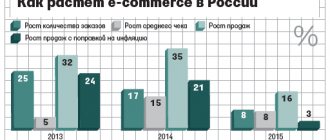There is a difficult exam or important negotiations coming up - are you preparing a three-story cake, practicing a symphony on the violin, or starting a spring cleaning? Congratulations, you are a procrastinator! No, this is not a sophisticated curse and not a synonym for the word “idler”, but a psychological term.
Check if you are a chronic procrastinator:
— Do you often say to yourself: “I’ll do it tomorrow”? — Does it happen that you make important purchases at the last minute? - Do you waste time instead of doing the right things? — Do you often remember that you didn’t do something right before leaving the house? — Do you put off making decisions if you are not sure of their correctness? — Do you set your alarm clock ahead a few minutes before you finally wake up? — Do you often find that you haven’t started tasks for which the deadline came “yesterday”? — Do you have to make excessive efforts to get something done on time? —Are you late for meetings because you put off getting ready until the last minute? — Do your plans for the day often remain unfulfilled?
If you gave 7 or more affirmative answers, then your level of procrastination can be called high; from 4 to 6 - you are at risk; 3 or less - no cause for alarm.
For deeper and more accurate diagnostics, there are specialized tests, for example, K. Lay (in Russian adaptation by T. Yu. Yudeeva, N. G. Garanyan and D. N. Zhukova) or B. Tuckman, although full versions of the methods are paid.
The most important criterion is a person’s feelings: does constant procrastination interfere with everyday life, does it interfere with work and rest? If this condition becomes obsessive and harms you, perhaps it’s time to change something. But there is good news: even a high level of procrastination does not always mean the need for immediate change.
Procrastination: putting off tasks and decisions
Literally translated, “procrastination” means “putting off until tomorrow.” Modern psychology defines this phenomenon as a voluntary delay in the implementation of what was planned, despite the possible consequences. The procrastinator understands perfectly well that his actions (and lack thereof) do not fit into the model of behavior approved by society, but he is not able to overcome himself: just the thought of work seems to instantly deprive him of his strength.
To one degree or another, procrastination is probably familiar to everyone: from endless coffee breaks instead of completing work assignments to “Mom, I’ll walk for another half hour and then do my homework.” In Russian classical literature, the number one procrastinator is, of course, Ilya Ilyich Oblomov (although it is possible that his case is an illustration of clinical depression), but other examples can be selected: Ranevskaya from Chekhov’s “The Cherry Orchard”, Manilov from Gogol’s “Dead Souls” , Romashov from “The Duel” by Kuprin, etc.
Despite the fact that this phenomenon has been known for a long time, it began to be seriously studied only at the end of the twentieth century. The story about the origin of the term itself is comical. Most Russian-language scientific works indicate that it was first used by Paul Ringenbach in the book “Procrastination in Human Life,” allegedly published in 1977 and mentioned in William Knaus’s article “Do it Today!”, which was published two years later.
However, later investigation showed that such a book did not actually exist, and no one understood Knaus's complex joke: the irony is that the work on procrastination was never completed. (Needless to say, the article you are reading now took almost two months to prepare instead of the usual two weeks.)
In 1993, psychologists identified several types of procrastination according to the areas of life where it can manifest itself:
- household - postponing daily chores around the house, such as washing dishes, buying groceries, etc.;
- academic - familiar to almost every schoolchild or student, when homework is done during the break before class, and night vigils before an exam have become a classic plot;
— procrastination in decision-making, including on unimportant issues;
- neurotic - occurs in a situation of uncertainty and is associated with the fear of making particularly important decisions, for example about buying real estate or getting married;
- compulsive - when “postponing” fills a person’s entire life.
A few years later, this classification was simplified a little, dividing procrastination into two main types: avoiding decision-making and postponing tasks.
Subsequently, the researchers divided into two groups. The former focused on diagnosing procrastination and determining its causes, the latter on studying the short-term and long-term consequences of this phenomenon.
Signs and symptoms
So, what characteristic features can be used to recognize a propensity to procrastinate in an individual? He waits until the last minute before taking action. He understands that there is a deadline ahead and time is slipping through his fingers. Nevertheless, he tries in every possible way to ignore this unpleasant feeling and continues to do unimportant things.
Such people are very prone to self-deception. Frequent “weighty” excuses for them are statements such as “I’m not in the right mood today” or “I need a magic kick to do everything quickly and perfectly” and other similar excuses. Thus, a person spends a huge amount of energy not only on unimportant activities, but also on worry and shame about his ineffectiveness.
Researcher Piers Steele, in his book “The Procrastination Equation,” identified a correlation between a person’s impulsiveness and the tendency to give up on things. An individual who lives only in the present moment prefers things that give an instant feeling of satisfaction. It turns out that he sacrifices what will bring useful results in the distant future.
Procrastination is an emotional state, as it manifests itself as a reaction to the need to fulfill one’s obligations and planned activities.
Depending on the type of emotions experienced, it is divided into 2 types: relaxed and tense.
With the first type, a person strives to have a good time and have fun, he is in high spirits, somewhat fussy, and occasionally experiences mild anxiety. In the second case, the individual is overloaded with responsibilities, he is unsatisfied, and indecisive. This is often accompanied by a loss of life guidelines.
The behavior of such a person goes through the following main stages:
- Inspiration - at first there is a desire to achieve some global goal.
- Decrease in enthusiasm - comes calm and the intention to abandon the decision.
- Fading motivation is a search for reasons why it is better to postpone the task.
- Postponement – the start of work is postponed indefinitely.
- Deadline – the moment comes when the task should already be completed. This is where destructive self-criticism begins. The project is either abandoned or hastily completed.
- The cycle repeats after some time.
And so it happens from one serious issue to another. The list of unfinished tasks is replenished and brings chaos into a person’s thoughts and life.
Why are we afraid of procrastination?
The strategy of putting things off has both obvious and not so obvious disadvantages.
Firstly, it is clear that a task that has been postponed for a long time in the calendar (real or imaginary) “for tomorrow” sooner or later has to be completed. But instead of calm and thoughtful work, it turns out to be a nervous race against time in the mode of an approaching deadline, and everything is done anyhow, just to make it in time, often at night, on liters of coffee or energy drinks. As a result, either the quality of the product or the health of the employee suffers, and in the vast majority of cases, both.
Secondly, stress, which is inevitable in such conditions, and the feeling of guilt for a poor-quality result (and sometimes quite “material” consequences - for example, deprivation of a bonus) take up a lot of emotional resources, finishing off psychological and even physical health that is already strained by the stress of work. .
As a result, an endless “ring of procrastination” is formed: there is no energy left for the next task, and its completion is again delayed and postponed, and then we barely squeeze into the deadline, again devoting all our strength.
An irregular rhythm of work becomes the norm and entails a number of negative consequences, such as anxiety, depression, and an inferiority complex. Researchers note the negative impact of procrastination on professional activity: productivity decreases, quality decreases, and career growth slows down. Physical condition also worsens - those who like to put things off for later often suffer from cardiovascular and chronic diseases (asthma, diabetes, etc.).
In addition, each type of procrastination gives rise to very specific problems that are typical for this model. Thus, delaying deadlines for completing assignments in online learning naturally leads to worse results in assessments and tests, and therefore reduces the overall performance of students. Procrastination of going to bed - the familiar feeling of “I’ll go to bed later, and in the meantime I’ll watch a TV series and read a book” - forces us to “accumulate” lack of sleep and is fraught with health problems. Cleverly called “Facebookcrastination,” the habit of sitting on social networks instead of doing important and urgent things gives pleasure here and now, but in the long term it leads to increased tension and deterioration of well-being.
Procrastination - what does it mean in the professional sphere?
And such rubbish all day long
Even when doing your favorite activity, distractions arise. But these are rather necessary breaks, time for switching or rest, which a person does not procrastinate on.
But it’s another matter when there is a need to work under a contract, then procrastination blooms in all its glory. The employer uses carrot and stick methods to motivate employees. But they continue to create only the appearance of activity for most of the day. The team is not working effectively. The reason for procrastination in this case is the mistake of management, which itself cannot determine and assign specific tasks to employees and does not provide them with clear planning.
Procrastination often plagues freelancers as well. But rather those who are “free” only conditionally and are obliged to surrender on time. Meanwhile, at home there is such a pleasant, relaxing atmosphere. Here you have a refrigerator with sandwiches and unlimited access to the Internet and TV. In some cases, freelancers are advised to work on dedicated laptops without access to entertainment content.
To feel sorry for the horse is to exhaust oneself
But still, most often, these are more self-organized comrades than their colleagues from the office. Freelancing is presented as life without an alarm clock, a boss and a dress code in the form of pajamas. This is partly true, but their earnings directly depend on the quantity and quality of the work done. And in this case, overcoming procrastination today means eating tomorrow.
As was the case, for example, in my case while working on the Etxt copywriting exchange https://www.etxt.ru/?r=freeanger. This is a platform where you can sell articles and photographs. But basically, articles are written according to a specific order from the customer by a certain deadline. And here are pajamas, seagulls and... the deadline - the line, “after which the customer begins to address you exclusively with obscenities.”
How many times have I wanted to write to him my cherished message: “Please move the due date to tomorrow, the day after tomorrow, or you can ask for a week.” But, fortunately, the excellent student complex whispered loudly: “Die, but do it” and helped me not to overdue a single order for more than a year of work. This is a school of self-organization in extreme conditions. Procrastination disappears as a species, especially if you really love what you do.
Reasons for procrastination
Putting off important things and replacing them with others occurs when you:
- you are doing the wrong thing;
- you don’t understand the task or the end goal.
When you wait until Friday from Monday, but still need to do some work, you begin to make an effort of will. This creates even more resistance from the body. If you apply more pressure, the problem is solved, after which you are exhausted and almost crawl out of the battlefield. And tomorrow is a new task. A vicious circle of effort and overcoming oneself is formed. Exhaustion occurs - a state of deep fatigue. Moreover, it does not go away with rest.
The solution: find something that does not cause internal resistance and do it with pleasure. This may not be easy, but it is vital.
Not laziness, but perfectionism
Both society as a whole and psychologists who studied the phenomenon of procrastination have long considered it a negative quality that needs to be gotten rid of as soon as possible. This phenomenon is easily confused with apathy, lack of will, laziness or immaturity.
However, research has shown that everything is not so simple. Academic procrastination, indeed, is more characteristic of lagging students, but professional procrastination is characteristic of perfectionists who strive to bring every little thing in their work to the ideal!
Such people endlessly put things off, mainly because they doubt whether they will be able to show decent results and avoid failure.
In addition to perfectionism, other personality traits :
- basic anxiety, constant doubts about the safety of decisions made, the chosen path and the world as a whole;
- low self-efficacy, that is, a person’s uncertainty that he is competent enough to solve the task;
- weak self-regulation - lack of understanding of one’s own needs and wants, inability to separate external values and goals from internal ones;
- external motivation, focus on what “needs” to be done, and not on what you really want.
external conditions also play a negative role.
:
— expectation of social disapproval or sanctions based on the results of the work;
— a strict deadline set by the customer, and not by the contractor himself;
— inconsistency of working conditions with the employee motivation system;
- the socially accepted idea of procrastination as the norm.
It turns out that procrastinators can become procrastinators for two reasons: due to unresolved internal conflicts or due to ineptly organized work conditions.
At the same time, the risk group includes, on the one hand, diligent excellent students with the “good girl (good boy)” syndrome, on the other, “eternal C students” with learned helplessness, and on the third, people who have found themselves subordinate to an illiterate manager.
Causes
A lot of research has been done on this topic. There are several theories explaining its nature, but each has weaknesses and is not generally accepted or universal. They don't explain the whole problem:
- Low self-esteem and anxiety. They create a lack of confidence that the work will be done as it should be or will be done at all. Having coped with this, a person begins to work with some degree of enthusiasm.
- “Participation is important, not winning.” Fixation is not on the result, but on the process, so a person is not interested in quickly completing the task. He loads himself with work, enjoying the work he does.
- Getting stuck on the fact that what you have done will not be appreciated. This entails the conviction that the matter is not worth any costs (effort, time).
- Monotonous and uninteresting work. It is one of the most common causes of procrastination. Here it is recommended to look for positive aspects in work or a creative approach to doing things.
- Inability to prioritize. Leads to rushing between urgent and unnecessary things or doing something that can wait, while the urgent remains unfulfilled.
- Perfectionism. The desire to achieve perfection and focus on details is accompanied by ignoring deadlines, fear of not being on time, nervousness, and dissatisfaction with the “imperfection” of what has been done. Perfectionists, horrified by the upcoming work or the short time, in their opinion, to complete it (and this does not depend on the volume, it can be small), almost give up on the task, delaying it (with a final decision not to do it).
- Self-restraint generated by a subconscious reluctance to stand out from others. Reluctance to “be noticed” in order to avoid tougher demands/criticism/envy. A negative view of one's ability to work effectively under current conditions.
- The spirit of contradiction. This is resistance, a protest against various aspects of the task (an imposed role, a plan, an algorithm, the need to do something not chosen independently). It is dangerous because it constantly demonstrates self-sufficiency and independence to oneself or others. An important role here is played by a subconscious or conscious tendency to conflict, rebellion, and confrontation. Such people are often dissatisfied with everything and constantly prove their independence from anything.
- Temporary motivation. The completion of a task is slowed down by the “time factor” when a task with “a lot of time” left before the deadline is not completed. A person’s desire to do something depends on confidence in success, reward, deadline. In this case, the time factor is perceived distortedly, affecting overall motivation.
- Character qualities. Everyone has their own weaknesses and this affects how things get done. Impulsive people are more likely to procrastinate. They take on work with enthusiasm, but do not complete it. The less persistent a person is, the more likely he is to procrastinate. Some people experience something like pleasure from the “forced march” necessary in an emergency situation, from the extremity of deadlines, the pressure of circumstances. Some are convinced that this mode improves the quality of task performance. Disorganization leads to chaos in work and irrational time management.
Procrastination protects against the pressure of the cult of success
However, there is another, quite optimistic view of procrastination. According to those who hold this opinion, this phenomenon has its advantages.
For example, a number of researchers consider the procrastination effect to be an adaptive mechanism that allows a person to preserve resources in the conditions of an endless race dictated by the universally promoted cult of success.
From the pages of social networks, magazine spreads and television screens we are told every day: “Be better than others! Be your best self!” One gets the impression that all life is a constant competition with no right to respite. In this case, procrastination becomes a kind of emergency inhibition, forcing a person to put things aside and engage in unproductive activities: watch a movie, eat something tasty, or just scroll through Facebook - and restore the balance between activity and necessary rest.
Active procrastination as a conscious strategy
In recent decades, the phenomenon of active procrastination has been studied, when people deliberately delay completing tasks, prefer to work under pressure, and get satisfaction from solving problems at the last minute.
Active procrastinators, unlike passive ones, are able to clearly set goals and determine deadlines for their work, but only get down to business when the deadline approaches.
Procrastination becomes a conscious strategy: instead of the feeling of guilt (“I could have done a better job if I had tackled it on time”) that accompanies normal procrastination, such people constantly feel proud of themselves (“I was on time again at the last minute”). .
Moreover, the quality of work performed in emergency mode may be even higher compared to the results of the same person when he works at a measured pace.
This strategy is typical of people who have high self-efficacy—confident that they have enough skills and knowledge to achieve their goals. In a stressful situation, they prefer to solve problems without unnecessary emotions and not avoid facing difficulties.
So before you get rid of procrastination syndrome, you need to find out whether it really interferes with your life or, on the contrary, is it a winning strategy that increases your effectiveness? A short test (available in English in this article) will help you determine what kind of procrastination you have - active or passive.
Consequences
- Difficulties with health, and all because anxiety and tension are constant background companions of an individual suffering from “tomorrow syndrome”. As you know, any emotions, if they are excessive, harm the body, depleting it and causing chronic diseases. To be more active when you no longer have the strength, you have to support yourself with various types of energy drinks. Which in large quantities cause irreparable harm to health.
- Insomnia. As soon as you don’t get normal sleep for a couple of nights, your biological rhythms become disrupted, which are then not so easy to restore, which subsequently causes insomnia and even depression.
- Due to the fact that the individual does not solve certain problems, or pays very superficial attention to them, this leads to failure and unfulfilled needs. Which in turn cause dissatisfaction with life and its low quality.
- Unemployment, or lack of a profession, since for failure to submit essays, tests and exams on time, they may well be expelled from a higher educational institution.
- A constant feeling of guilt and anxiety destroys relationships with other people, since it does not allow them to “build them well”, giving all their best and not disturbing the “give-take” balance. It has a particularly negative impact if a person does not keep his promised word. They simply will not trust him, and, accordingly, will not recognize him and respect him.
- Due to the above points, the “tomorrow” syndrome can only intensify, which will lead to even worse consequences.
Is life possible without procrastination?
If we consider procrastination as a protective mechanism of the psyche, then we must admit that we need it as much as, for example, pain or sleep.
On the one hand, procrastination is a symptom of a malfunction in the functioning of our brain and/or in the organization of activities, and it is better, of course, to structure your life so that there are as few such “bugs” as possible.
On the other hand, overcoming procrastination using the “grit your teeth and do it at all costs” method, as well as trying to ignore the pain, is fraught with complications. Therefore, the best way is to eliminate not the symptom, but the cause.
Of course, in the lives of each of us situations arise that require an immediate solution here and now. For example, when the deadline is blazing, and an invisible voice seems to whisper: “No, let’s get to work a little later!” — the first priority becomes “symptomatic treatment”, after which it is already possible to begin systemic changes.
Emergency help against procrastination
In the short term, when you need to overcome procrastination immediately, the following techniques help solve the problem:
1. Eat the elephant piece by piece. Divide a large task, the sheer volume of which is terrifying, into several stages that take half an hour to an hour. For example, instead of doing a general cleaning of the entire apartment, you can perform local tasks: sweeping the floor, tidying up the closet, wiping down the kitchen surfaces, interspersed with conscious rest or even planning the process over several days.
2. Give yourself time to get involved. If you don’t want to take on a serious and complex task at all, you can “deceive” your own brain by first doing the simplest operations that don’t require much energy.
When easy tasks have already been completed, the mechanism of post-voluntary attention often turns on, and the person concentrates on work as if by inertia, this happens by itself.
For example, before taking on the substantive part of the thesis project, you can do mechanical work: adjust the margins and font, arrange bibliographic references in accordance with GOST - and, without noticing it, write a few paragraphs of good text.
3. Fill the pauses with useful things. In the short breaks needed to take a break from your main activity, you can replace the usual “distractors” like social networks or meaningless videos with useful and interesting ones that do not require a high concentration of attention. In this case, procrastination will not be accompanied by a feeling of guilt for wasting time. Listen to a popular science podcast, tidy up your desk (both computer and physical), take a walk—in short, take a “smart” break.
4. Eliminate distractions. To overcome procrastination, it can be useful to change your environment so that you are not tempted to switch to other activities. For example, instead of working remotely from home (where every second you see reminders of unironed laundry, untidy crumbs, unfinished rearrangements, etc.), you can take your laptop to a coworking space or cafe, where it will be much easier to concentrate.
5. Use self-motivation techniques. Promise yourself something pleasant immediately after completing a long-postponed task. So, for each paragraph of your dissertation, you can reward yourself by putting a small amount into a special account, and after completing all the work, celebrate in a cafe or devote the whole day to relaxation and rest.
How to reorganize your life and not forget about your needs
In the medium term - from several months to several years - it is worth reconsidering your own attitude towards work and making changes to the organization of work.
A positive effect in the fight against procrastination is provided by time management training, which teaches how to set goals, correctly determine priorities when there are several tasks, and plan rest and work taking into account one’s own biorhythms. If you can rearrange your schedule so that active activity occurs during the most productive hours, then the number of postponed tasks (the result of passive procrastination) can be significantly reduced.
In some cases, delegating responsibilities helps. If, for example, the apartment remains uncleaned on weekends from month to month, because the mere thought of a vacuum cleaner and mop causes an attack of nausea, and the accumulated dirt then has to be washed off with a strong-willed decision and with enormous expenditure of energy, it may be worth entrusting this work to specially trained helpers for a reasonable fee or household members as part of a barter exchange (“you will clean and wash the dishes, and I will cook”).
And finally, a strategic solution to the problem of procrastination is to change your attitude towards business, leisure and yourself.
To do this, you will have to figure out on your own or together with a psychologist what exactly causes the desire to constantly put off important things: fear of failure? disgust for your own work? Feelings of worthlessness and helplessness? general loss of strength and emotional exhaustion?
The solution to the problem depends on the answer to this question. It is possible that you will need to undergo a course of treatment - for example, in the case of asthenic or depressive disorder. Or radically change the field of professional activity. Or maybe it will be enough to give up part of the workload in favor of a hobby that you have long wanted to take up, but somehow it didn’t work out.
You need to learn to listen to yourself and organize your life so that it is full, interesting and meaningful - only in this case will you be able to cope with the procrastination syndrome.
But there is another way: perhaps you should just stop fighting procrastination?
An attempt to rethink one’s life sometimes does not increase productivity, but leads to the fact that a person refuses to fit into a system that constantly demands: “Work more efficiently, even more efficiently!” This path is not new: it was followed by medieval hermits; it is also chosen by modern downshifters or hikikomori, who fence themselves off from other people in order to live by their own rules and find long-awaited peace.
Content
- 1 Definition 1.1 Russification of the term
- 3.1 Low self-esteem
- 4.1 Categorization of time use











